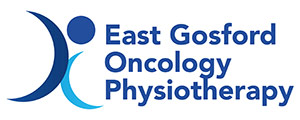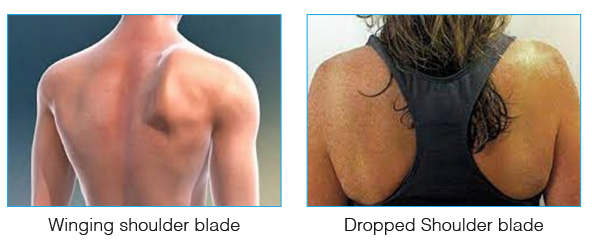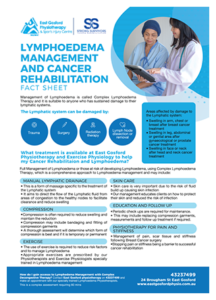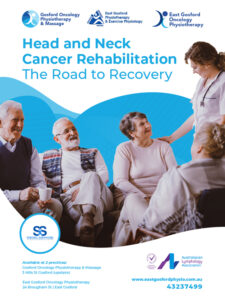
24 Brougham Street, East Gosford
Call (02) 4323 7499
NEW LOCATION

3 Hills Street, Gosford
(upstairs of Dr Sharon Laura rooms)
Call (02) 4323 7499
Head and Neck Cancer Physiotherapy Management – How East Gosford Oncology Physiotherapy can help with the side effects of treatment.
Head and Neck cancer is a general term that can cover many forms of cancer that require many forms of treatments which unfortunately can lead to side effects.
East Gosford Oncology Physiotherapy has developed a program to help rehabilitate men and women who have undergone treatment for head and neck cancer to help them get on their recovery journey.
Possible side effects from treatment for head and neck cancer may include:
- Scarring and contracture
- Skin problems
- Lymphoedema
- Pain
- Difficulty with breathing or swallowing
- Stiffness into muscles, neck and shoulder
Our highly trained physiotherapists at East Gosford Oncology Physiotherapy will provide a comprehensive assessment in our safe hygienic clinic and then advise you on a rehabilitation pathway to help you recover.
1. Musculoskeletal Physio to get you moving again
Our head and neck oncology physios will assess you for problems with movement and posture and show you when it is safe to get moving again.
This may require some specific physio to improve neck or shoulder movement as joints can become stiff and muscle can become weak as part of you cancer treatment.
Nerves in your neck can sometimes be affected by your surgery. This is taken into consideration with any rehabilitation of the head, neck and shoulder, as it will influence how much exercise you can do.
The spinal accessory nerve (SAN), is involved and this supplies muscles which help turn your head and position your shoulder blade.
The two main muscles which can be affected or become weak are the sternocleidomastoid and trapezius. These muscles are complex in their actions and if the nerve is damaged or sacrificed during the surgery your shoulder will sit lower on that side (dropped shoulder) and the shoulder blade may wing out backwards (winging). Both these issues can lead to difficulties in using your arm above shoulder height due to weakness of the supporting muscles and cause pain and stiffness in the shoulder.
If the nerve has been sacrificed (cut during surgery), these muscles will not recover their function and will be very weak. In this case your physiotherapist will advise you on how to stretch your neck and shoulder to prevent progressive stiffness, which if left unattended can lead to pain.
Neck surgery can sometimes just bruise or injure the nerve without permanent damage and will affect the muscles of the shoulder and neck in the same way, but they can recover their strength.
Unfortunately, this can take many months for recovery, so we need to ensure that the shoulder and neck moves well in this time to prevent stiffness. Your physio will advise you on exercises to prevent joint stiffness and retrain the muscles to do their job.
Your specialist or nurse will advise you on when you are safe to start exercising and we will take all precautions with wounds and scars to ensure you regain good function as quickly as possible.

Please see our short videos on neck and shoulder exercises
Part 1 – Neck exercises
Part 2 – Shoulder exercises
2. Lymphoedema management with head and neck cancer – How we can help you
Our specially trained, Registered Lymphoedema Physiotherapist will apply the following lymphoedema management techniques to help you understand, manage and self -treat your Lymphoedema.
• Manual Lymphatic Drainage (MLD) is a specialised form of massage which helps to clear the swelling from the areas of congestion in the face, head and neck. Your Lymphoedema Physiotherapist will apply this massage to you to speed up the drainage of lymphatic fluid.
We will teach you how to self-manage and perform a simplified form of MLD in order to reduce your head and neck lymphoedema. This is known as Self-Lymphatic Drainage (SLD) and is an important self management tool. (see link to video with demo)
• Exercise to relieve stiffness and loss of movement.
Movement helps to improve the flow of lymphatic fluid out of congested areas. These exercises may be commenced when you have permission from your specialist or oncology health team to start moving, we will individually assess you and start you on an exercise program appropriate to your stage of recovery.
• Skin care. Our lymphoedema Physios will help you to manage and protect your skin when you have lymphoedema.
It is important to keep your skin clean and well moisturised as this decreases your risk of infection. Once the skin and wounds have healed completely from radiation or surgery, you can use a gentle fragrance free moisturiser and gently massage into your neck and face daily. During radiation therapy, your radiation oncology team will advise you about which moisturiser you should be using.
• Scar Management. Scars need to be soft and mobile to allow for lymphatic fluid to drain through the lymphatic vessels and tissue. Scar management techniques will be used by your Oncology and lymphoedema Physiotherapist and can be taught to you ,specifically related to your stage of healing.
• Compression garments may also be used to control swelling.
Your Lymphoedema Physiotherapist will advise and guide you to the right choice for your situation. We are an ENABLE supplier and this allows for some fee relief when you are prescribed compression garments.
Please go to this 3 part short video series to learn how you can start to self-manage your head, face and neck Lymphoedema




